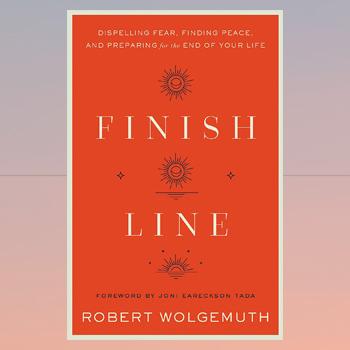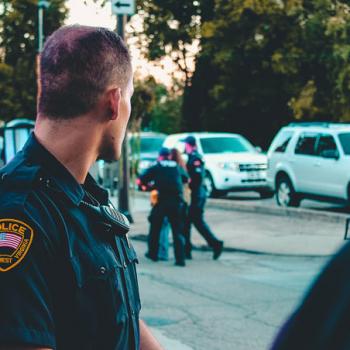
For decades I have spent long and fruitful hours dialoguing with prolife advocates as well as proponents of racial justice. Both causes are close to God’s heart, and I have often regretted that those who see clearly one of these causes are often blind to the other. I don’t know anyone more insightful and articulate on these issues than my friends Ben and Kirsten Watson, who beautifully model a kind and thoughtful commitment to both prolife justice and racial justice. For fifteen years Ben was one of the most highly respected players in the National Football League, and now that he’s retired, he and Kirsten continue to have a ministry to many inside and outside the NFL.
There are things in Ben’s new book, The New Fight for Life: Roe, Race, and a Pro-Life Commitment to Justice, that may offend some political liberals and things that may offend some political conservatives. Readers who want to learn and grow should suspend judgment and prayerfully and non-defensively listen. If you do you may find you agree with more than you expected to, and that you can disagree with parts while being enriched by the whole.
In the introduction, Ben writes,
…let’s jump right in and acknowledge the elephant in the room. What business does a retired football player have speaking into the pro-life discussion?
It’s all right. I get that question a lot, and while I realize many people consider this to be a women’s issue, there are several reasons that I, as a man, have joined the ranks of those speaking into it.
For one thing, there are currently seven children (and holding) in the Watson household, each one of whom has forty-six chromosomes, twenty-three of which they got from my wife, Kirsten, and twenty-three of which they got from me. So from a strictly biological standpoint, men have an equal share in the procreation of every child.
Also—while I am by no means saying this is right— historically speaking, when it comes to politics and the law, men have held the majority of the power. Case in point: there have been 115 Supreme Court justices in US history, and all but seven of them have been white men. Women didn’t even hold a seat on the Supreme Court until Sandra Day O’Connor was confirmed in 1981, and there was not a Black woman represented until 2022, when Ketanji Brown Jackson became the first Black female justice in the Court’s 232-year history. It was seven men who voted Roe v. Wade into law in 1973, and five men and one woman who voted to overturn it in 2022.
I’m not trying to quell the voice of a woman speaking out on her own behalf. It’s vital that women do advocate for themselves. But given that it’s still predominantly men making the decisions, it seems to me that the most effective way to even the playing field is for men with like-minded ideologies to advocate for equality and justice along with and on behalf of women.
In many ways and for many reasons, men have championed abortion on demand in this country. They—we—have led the campaign to legalize this practice, harming women along the way, framing the unnatural as choice and freedom while ultimately seeking to benefit our own interests and protect our own passivity. It was a man, Dr. Alan Guttmacher, who first introduced abortion to Planned Parenthood.
Too often, men have remained silent on topics that matter most, believing the common assertions that abortion is a women’s issue. I have even encountered men who claim abortion is a necessary good to protect against future suffering or to keep other social ills at bay.
But as a man, I take very seriously the words written in Proverbs 31. Most people are familiar with the description of the Proverbs 31 woman, but earlier in the chapter, the author (King Lemuel) describes what his mother taught him. I suppose you could say this is what it means to be a Proverbs 31 man:
Speak up for those who cannot speak for themselves;
ensure justice for those being crushed.
Yes, speak up for the poor and helpless,
and see that they get justice.
PROVERBS 31:8-9Isaiah 1:17 says, “Learn to do good; seek justice, correct oppression; bring justice to the fatherless, plead the widow’s case” (ESV). Over and over in Scripture, God challenges us to protect widows, foreigners, the young, and the vulnerable. In fact, the truth of the gospel, in its totality, challenges each one of us to humbly ask God to show us places where we can make a difference.
To that end, the issue of abortion is very much intertwined with others of equal importance to me, like poverty, racism, and the trafficking of children. The way I see it, these are all matters of justice.
Over the course of my career, Kirsten and I have been introduced to individuals and organizations on the front lines of some of the worst ongoing human rights violations in the world today. Through those partnerships, I’ve seen firsthand how poverty, inequality, fear, and desperation can push people into unthinkable choices.
I traveled to the Lebanon-Syria border in the spring of 2017 with a pastor-friend of mine to witness the impact of the war in Syria. Hundreds of thousands of refugees had fled the violence, leaving behind their homes and possessions. We met with Lebanese pastors who had opened their church doors to families fleeing violence and visited primary schools where children were trying to continue their education in an unfamiliar land. I remember seeing a student’s drawing taped on the wall, depicting him and his family running from tanks and bombs. Sitting on the floor in the primitive conditions of a tent settlement, I spoke to a father about his harrowing experience. His wife sat by his side as their children peered through the sheet that served as a door.
Recalling the dangerous journey to safety across the border, he said through our interpreter, “As a father, I just want my family to be safe. We go to sleep hoping we will wake up back home. But we don’t know if we will ever return.”
My heart and mind drifted thousands of miles away to my own family and how, like him, I would willingly endure extreme hardship to keep them safe. No matter the cause of suffering—war, sexual abuse, food poverty, or discrimination— human suffering should upset us, and even offend us.
So while a lot of people define pro-life as protecting the preborn, I believe being pro-life means caring about life, period, and recognizing that everyone has the right to flourish and be protected, regardless of age, ethnicity, gender, or socioeconomic standing.
To echo pro-life activist Cherilyn Holloway, being pro-life means that “we care about the life that is in the womb, but we also care about the man on the street. We also care about these children and where they’re getting their education and health care from and Grandma and Grandpa who are entering end-of-life care and that they’re treated with dignity and respect. . . . These are all whole-life issues for us.”
Simply put, every life bears the image of God, so every life has value. For me, being pro-life means advocating for every life—especially those who cannot advocate for themselves.
This is the kind of book that can lead us beyond shallow political slogans and stereotypes that fit on bumper stickers or Twitter but are out of place in intelligent and respectful dialogue. The Post-Roe era we’re in now is a time to ask God to open our hearts and minds to what matters to Him. I believe He has raised up Ben Watson to be a voice for two interwoven causes that should be simultaneously embraced. I highly recommend The New Fight for Life. (You can read a longer excerpt here.)
In this video, Ben shares more about why he wrote the book:













